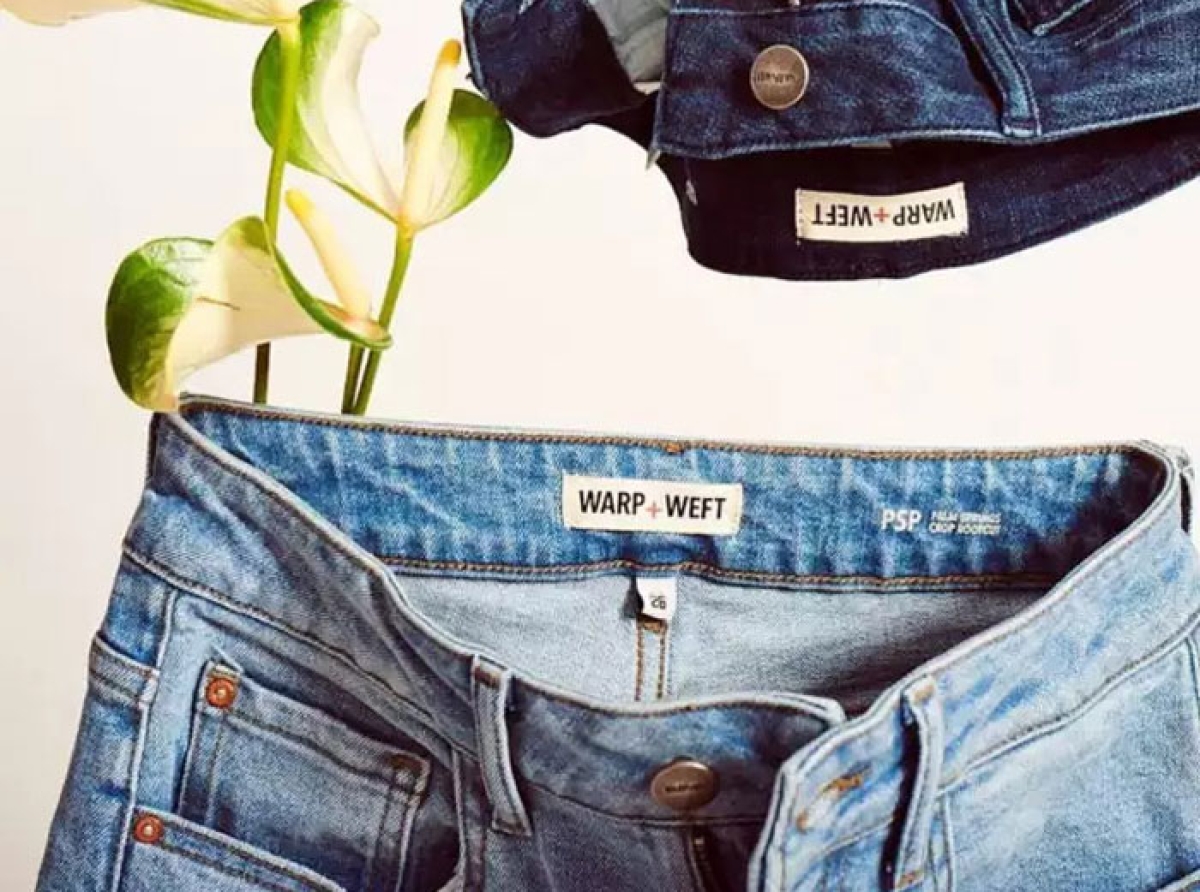Responsible jeans making that is sustainable & environmentally friendly, adopting green technology & resource efficient is “New normal for global brands”

29 December 2021, Mumbai:
In November, when US company Levi’s did a collaboration with creators from online vintage marketplace Depop in Australia, we were reminded of a few things: that denim has cross-generational appeal, and that one of the best ways to be sustainable is to give something a new lease of life.
This is particularly relevant to denim. While clothes made from the fabric are the kind of wardrobe workhorses that get better as they age – more comfortable, worn in but in a good way – denim has long been considered notoriously bad for the environment.
Denim can take many litres of water to produce, and requires the use of cotton (a notoriously thirsty crop) and chemical dyes. Then there are issues around production and traceability.
That said, the denim industry, while as susceptible to “green washing” as any other, is making strides toward lessening the impact a pair of jeans can have on the planet.
More brands are manufacturing denim using Global Organic Textile Standard (Gots) certified cotton, upcycling it and making made-to-order jeans that reduce waste, while companies such as Sweden’s Nudie Jeans will repair your jeans free of charge, no matter when you bought them.
Outland Denim, an Australian brand worn by the likes of Meghan Markle, Duchess of Sussex, provides ethical employment for women rescued from trafficking in Cambodia, as well as using Gots cotton, non-toxic dyes and reducing the water use and waste in production. The brand has B Corp certification, which means it is a business working towards a more sustainable economy.
The company’s founding CEO, James Bartle, says he has noticed a major shift in the denim industry since he launched the brand in 2011.
“Back then, it was more a niche conversation happening among members of the fashion community, and perhaps a bit elitist, but there is a lot more education and awareness now by comparison,” he says.
“Now, innovation in sustainability is not only essential in denim but seen as a sign of design expertise, and there are also a lot more opportunities to collaborate in this space. It’s great to see the uptake in technology that cleans up denim manufacturing – which is one of the dirtiest garments when made conventionally.
“These shifts largely centre around water and energy conservation, natural dyes and chemicals, stretch innovation, and vegan trim options.”
However, Bartle acknowledges there is still much to be done, including on the treatment of the people who make our clothes. “[N]ot just garment workers, everyone involved in the supply chain,” he says.
Reducing the waste associated with denim production is the goal of Hong Kong-based start-up denim brand Unspun. Founded by Stanford graduate Walden Lam, who has worked for the likes of athletic apparel retailer Lululemon and financial company Goldman Sachs, the brand uses 3D scanning and robotics to help customers find the perfect fit of jeans.
Customers were initially sceptical … But after they try out our jeans, they tell us that it’s actually very hard to go back to standard sizes Walden Lam, founder of custom jeans maker Unspun
“Unspun was founded because jeans shopping really sucks. I personally struggled with it immensely and many of our friends did, too,” says Lam. “Given how damaging denim production is, the mindless mass production based on cardinal sizes was, in our opinion, a little counterintuitive.
“So we founded Unspun with the mission of reducing global human emissions by one per cent through intentional and automated manufacturing.”
Lam says the concept took consumers a little while to “get”.
“Customers were initially sceptical, I think,” he says. “But after they try out our jeans, they tell us that it’s actually very hard to go back to standard sizes. The pandemic, supply chain crunch and climate crises are forcing fashion brands to come up with business models that enable them to generate more revenue without exhausting more resources.
“Metaverse fashion, re-commerce and on-demand [fashion] like Unspun are obvious answers to some of these issues.”
Another brand working to solve the issues around fabric and production is cult Los Angeles-based label Frame. In November, the brand launched a range of biodegradable jeans made with plant-based Coreva Stretch Technology (also used by the likes of Stella McCartney), which creates fabric stretch without synthetic or petrol-based materials.
The range includes three new fabrics – Rigid 727, Comfort Stretch 785 and Super Stretch 778 – made in partnership with the premium Italian denim mill Candiani, which is known for long-standing, sustainability-minded innovations such as regenerating its dye baths and minimising toxins.
Scmp.com (The news article has not been edited by DFU Publications staff)
Dear Reader, we at DFU Publications are committed to providing the latest news updates on trade development and insights, to keep our readers informed. Stay tuned. Subscribe to our newsletter.
DAILY NEWS:


















